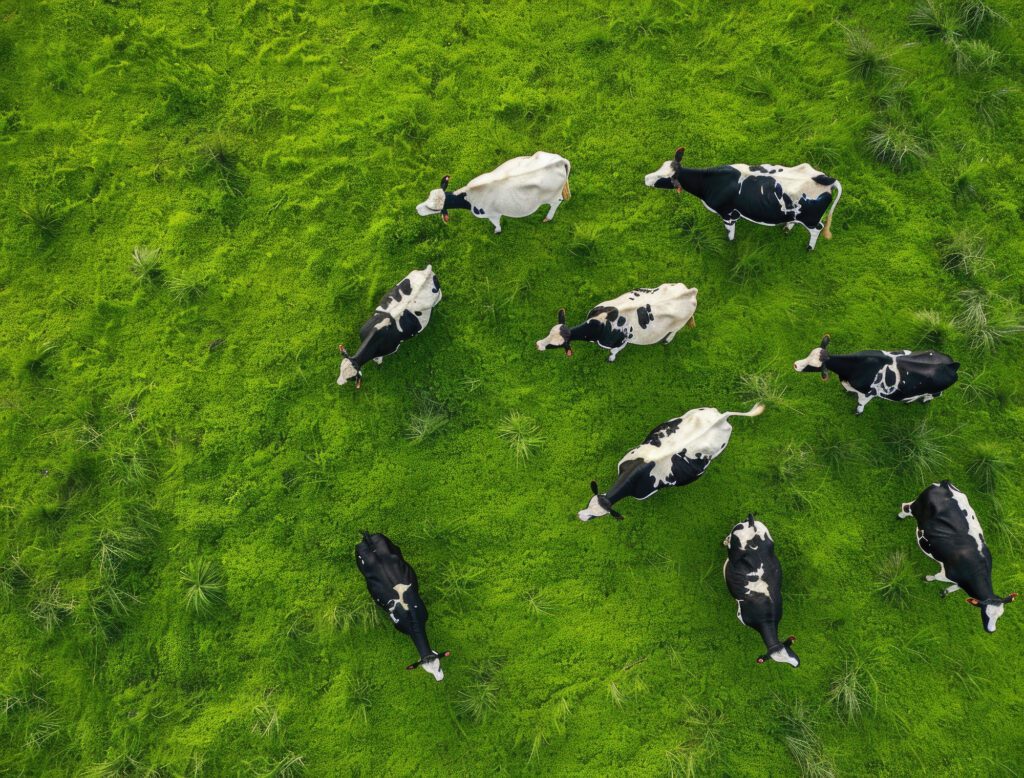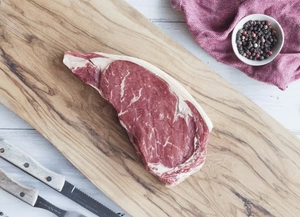In recent years, the demand for sustainably raised and nutritionally superior beef has surged, leading consumers to seek out options like grass-fed and grass-finished beef. Though both terms are often used interchangeably, they signify different farming practices and yield distinct beef qualities. So, let’s look into the difference between grass-fed and grass-finished beef and the reasons why fully grass-fed (grass-finished) beef might be the preferable choice for discerning consumers.
In Australia, beef labelling laws require that terms like “grass-fed” and “grass-finished” be used accurately to reflect the cattle’s diet for consumer transparency. For beef to be labelled “grass-fed,” the cattle must have been primarily fed on pasture, although some grain supplementation is allowed, usually during the latter stages of their lives to expedite weight gain before market. “Grass-finished” beef, however, must come from cattle that have been exclusively fed on grass and forage for their entire lives, with no grain supplementation. This strict diet ensures the beef remains free from any grain influences, and here is why:
1. Grass-Finished Flavour Profile
There is a great distinction between the flavours of grass-fed, which can be highly variable and often described as slightly gamey or earthy. It may still retain some of the flavours associated with grain-finished beef due to partial grain feeding. In comparison, grass-finished beef is known for a distinct, robust, and sometimes more intense flavour, a unique taste profile derived purely from grass diets.
2. Higher Nutritional Value of Grass-Finished
Grass-finished beef is richer in omega-3 fatty acids, which are essential for heart health and reducing inflammation. It also contains more antioxidants like vitamin E and higher levels of CLA (conjugated linolenic acid), which is linked to various health benefits, including anti-cancer properties.

3. Lower Fat Content of Grass-Finished Beef
Grass-finished beef is leaner compared to grain-fed beef, making it a healthier option for those looking to reduce their saturated fat intake.
4. Environmental Impact
And let’s not forget about the environmental impacts cattle have on our planet. In general, grass-fed beef is far better than feed lot beef in terms of environmental impacts, although grass-fed beef’s impact can vary depending on the extent of grain supplementation. If grain-fed periods are short, the environmental footprint might be similar to grass-finished. Grass-finished is generally considered more sustainable, promoting better land management and reducing reliance on industrial farming practices associated with grain production.
5. Animal Welfare
And talking about farming practices, let’s not forget that the differences in feeding practices directly relate to animal welfare. Grass-fed welfare standards can be high, but the introduction of grains often means periods of confinement or feedlots, which can be less ideal for animal welfare. Meanwhile, grass-finished pastures promise high animal welfare, with cattle grazing on pasture for their entire lives, promoting natural behaviours and a stress-free environment.
6. Support for Small Farms
Often, grass-finished beef comes from smaller, family-run farms that prioritize sustainable and ethical farming practices. Supporting these farms can help promote local economies and provide more personalized care for the animals.
While both grass-fed and grass-finished beef offer advantages over conventional grain-fed beef, grass-finished beef stands out for its nutritional benefits, ethical considerations, and environmental sustainability. Choosing fully grass-fed beef aligns with a commitment to health, quality, and responsible consumption, making it a compelling option for those looking to make informed and conscientious food choices.
At Glo Health, we choose ethically and sustainably sourced meats from Cherry Tree Organics. Australian-certified organic, 100% grass-fed, and finished. This means it’s free of harmful chemicals, pollutants, and hormones. And it’s packed with more good things to nourish your body: iron, zinc, protein, omega-3, vitamins B & D, and more. Find some instore and taste the difference.
References
Daley CA, Abbott A, Doyle PS, Nader GA, Larson S. A review of fatty acid profiles and antioxidant content in grass-fed and grain-fed beef. Nutr J. 2010 Mar 10;9:10. doi: 10.1186/1475-2891-9-10. PMID: 20219103; PMCID: PMC2846864.
Grass fed small and very small producer program. U.S. Department of Agriculture. https://www.ams.usda.gov/services/auditing/grass-fed-SVS. Accessed March 22, 2021.
Provenza FD, Kronberg SL, Gregorini P. Is Grassfed Meat and Dairy Better for Human and Environmental Health? Front Nutr. 2019 Mar 19;6:26. doi: 10.3389/fnut.2019.00026. PMID: 30941351; PMCID: PMC6434678.


